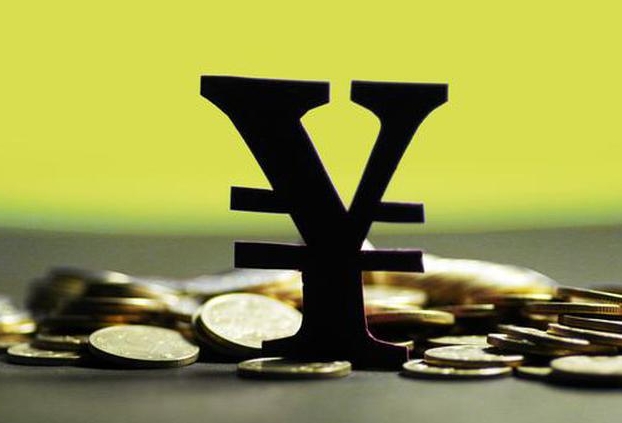- Financial Policy
- October 17, 2024
- Comments(519)
South Korea's Crisis: Global Economic Fallout
Advertisements
In an unexpected turn of events on December 3, South Korean President Yoon Suk-yeol declared a state of emergency, only to rescind it just over six hours later following pressure from the National Assembly. This rapid escalation and retreat of political measures not only caused a significant stir within the South Korean financial arena but also instigated ripples across global capital markets, raising concerns about the viability of the South Korean economy and its financial stability. The political turmoil surrounding the president could linger, with the possibility of impeachment on the horizon, thus deepening the crisis.
Analysts have long drawn parallels between South Korea's economic sensitivity and the canaries used by coal miners in the UK during the industrial revolution. Just as miners relied on these small birds to signal danger, South Korea's economy acts as a barometer for global economic health, where domestic upheavals can send shockwaves internationally. The sudden declaration of an emergency state, although a domestic political maneuver, highlights South Korea's central role in global supply chains and trade, emphasizing the interconnectedness of today’s economies.
Given its critical position in global trade and technology supply chains—especially in the semiconductor industry—any disruptions could have far-reaching consequences. South Korea's semiconductor sector is foundational to electronic manufacturing worldwide. Thus, concerns arose that the emergency measures could slow down production or even halt logistics, potentially leading to component shortages and increasing costs for technology firms reliant on these chips. Such disruptions might not only hinder product development but could also delay market supply, sparking a domino effect throughout the global tech industry.
Moreover, the implications extend beyond the tech industry and into the realm of consumer confidence. If the political turmoil escalates, consumer sentiment toward the South Korean markets could be dampened, also influencing global demand. Increased trade tariffs from the United States amplify the stakes, likely compounding the challenges already faced amid domestic instability. The backdrop of uncertainty and volatility pushes global economic participants to reassess risks and reevaluate their strategies in anticipation of potential turmoil.

As the emergency unfolded, global financial markets responded with alarm. Investing entities around the world opted to divest from South Korean assets, reflecting a lack of confidence. The stock exchanges experienced turmoil, with Korea leading in declines across Asia. The KOSPI 200 stock index suffered notably, plunging over 5% during night trading, while the MSCI South Korea ETF traded down approximately 7% in U.S. markets. The anxiety reverberated as the Korean composite stock price index opened at 2450.76 points, reflecting a 1.97% drop from the previous session. Even the tech giant Samsung witnessed a temporary 3% drop in share price.
However, the markets appeared to stabilize after a decisive cabinet meeting that led to the cancellation of the emergency order. Following this, the decline of the MSCI South Korea ETF narrowed to around 1%, and the Korean won's depreciation also lessened visibly. In response to the volatility, the Korean Financial Services Commission pledged to employ all necessary measures to ensure the stability of the financial market, including a stabilization fund of 100 trillion won (approximately $51.5 billion).
On the global monetary front, the Korean won holds significant weight, being the 12th most traded currency worldwide. The pressure on capital exiting South Korea looms large, pushing the won's value downward and creating upward risks for the dollar-to-won exchange rate—a situation exacerbated to its lowest in over 15 years. Given the current economic instability in Western Europe, particularly in Germany and possibly France, market confidence in the dollar grows. Its higher interest rates and relative liquidity make it an appealing 'landing spot' for global cash holdings.
Unprecedented anomalies were also witnessed in the Korean cryptocurrency market amidst the emergency declaration. Bitcoin's trading price plummeted drastically from 134 million won (approximately $94,500) to 88 million won ($62,100), with exchanges hitting moments of transaction halts. South Korean traders are notorious for their penchant for high-risk investments, often utilizing volatile cryptocurrencies as a safeguard against market fluctuations. The staggering drop in Bitcoin illustrates an extraordinary market reaction, with altcoins facing similar declines, indicating a disconnection between South Korean prices and their global counterparts.
In summary, even though President Yoon’s declaration and speedy withdrawal of the emergency decree might seem like an isolated incident, it symbolizes ongoing challenges within a struggling economy. The uncertainty revolving around political leadership presents substantial risks that can cloud investor sentiment about the stability of South Korea's financial markets. The unfolding situation significantly impacts global economics, manifesting through a depreciated won, heightened safe-haven asset prices, and an increased allure for the U.S. dollar. This precarious atmosphere keeps international stakeholders on high alert as they navigate the complexities of an increasingly interwoven global economy.